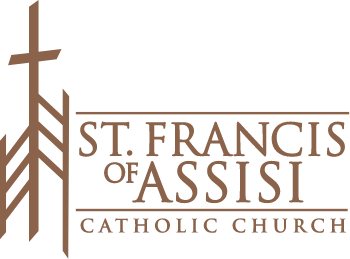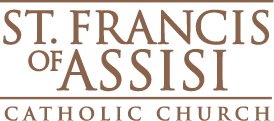The family is the “original cell of social life” (Catechism of the Catholic Church 2207) and the need to support it, recall our roles within it, and strengthen our commitment to those roles is more important than ever. Never in history has an attempt to destroy the family been so strong. It is with this in mind that we must reaffirm our roles as husbands and wives, fathers and mothers, and children of Catholic families.
To know our roles within the context of the Catholic family and according to the teaching of Holy Mother Church, it is prudent to consult the Catechism of the Catholic Church (CCC). The CCC describes the family as “a privileged community called to achieve a sharing of thought and common deliberation by the spouses as well as their eager cooperation as parents in the children’s upbringing” (CCC 2206). The Church has clearly delineated three main roles, each proceeding from the first. The role of the spouse, the role of the parent, and the role of the child.
The relationship between husband and wife plays a critical role in the stability of the home and in the faith of the family. The role of the spouse is to “love each other with the love with which Christ has loved his Church” (CCC 1661) through the grace given to them by God. It is through this love that spouses establish an “inviolable fidelity” (CCC 1646) which seeks a “mutual giving of two persons, and the good of the children … and require an unbreakable union between them” (CCC 1646). It is essential that husband and wife remain as one body in Christ, that their love may fill the lives of those around them. Out of this selfless love comes the potential to bear fruit, enter parenthood and fulfill their final role.
Next, the role of the parent is derived from joining in the “divine fatherhood” as the “source of human fatherhood” (CCC 2214). As St. Paul teaches, ”for this reason I kneel before the Father, from whom every family in heaven and on earth is named.” Because of this, parents must “regard their children as children of God” and “showing themselves obedient to the will of the Father in heaven … educate their children to fulfill God’s law” (2222). To be successful in this parents must create a home where tenderness, forgiveness, respect, and fidelity are the rule.
Parents are one unit; however they play different roles using the Holy Family as a guide.
The Father should strive to reflect the life of St. Joseph as his role model. St. Joseph is the father and leader of the Holy Family. As husband, he guided, protected, provided for, and administered the life of the family. A father models virtues of fortitude, fidelity, and temperance. He teaches his children how to behave as a man (for his son) or what virtues to look for in seeking a husband (for his daughter). A father is called to be the prayer-leader of the family.
Mothers should take Mary as a model, as she is the very icon of the mother. She nurtures and bears fruit to all in her care. She uniquely instills tenderness and love to all who dwell within the house. Her steady hand guides the husband and children towards virtues of patience, kindness, love, and service. Her selfless actions are the life-breath of the family.
The Christ Child was the center and heart of the Holy Family, just as children are the center and heart of today’s family. The role of the child is to respect their parents, a respect derived from “gratitude toward those who, by the gift of life, their love, and their work have brought their children into the world” (CCC 2215). Respect from a son or daughter “promotes harmony in all of family life; it also concerns relationships between brothers and sisters,” and “respect toward parents fills the home with light and warmth” (CCC 2219).
Individual holiness is the common and shared goal within a Catholic family. With God’s grace, this goal is real and attainable. The practices shared in a Catholic household provide a necessary foundation for our families’ moral and spiritual growth. We live in the shadow of the Manger; any discussion of family roles and dynamics as Catholics would do well to begin there.
Matthew Weller — SFA Theologians Guild Member

